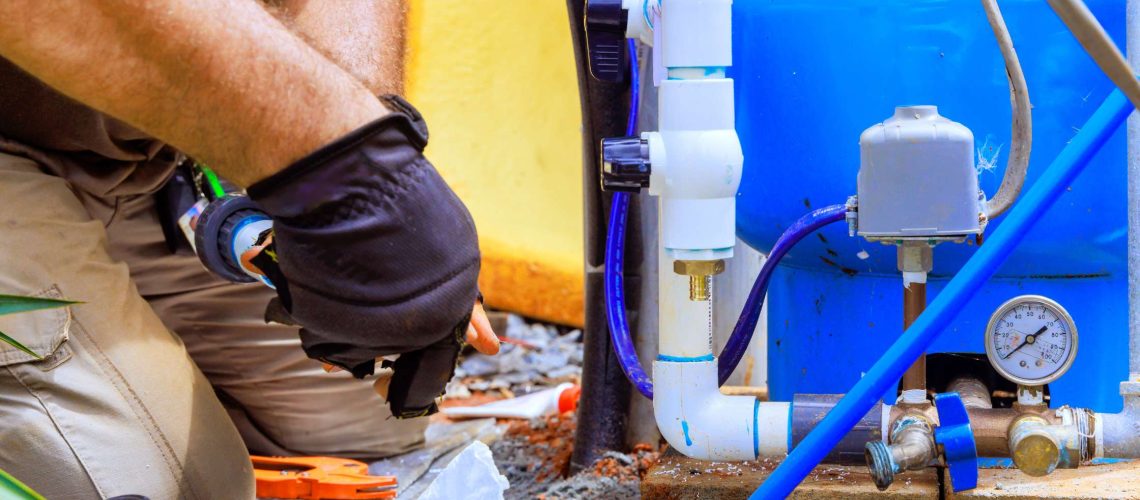Ensuring a constant supply of life’s most essential resources—your well water system—is critical. You might think it’s just a hole in the ground, but there’s much more beneath the surface. Each component, from the protective casing to the reliable pump and pressure tank, is vital in delivering clean water.
But what happens if one of these parts fails? Are you prepared to handle potential problems? Understanding these elements helps keep your water flowing smoothly and protects your household’s health and safety.
Key Components Overview
Several key components work together in a well water system to ensure a reliable and safe water supply.
First, choose well casing materials like carbon steel or plastic to protect against collapse and contamination.
Next, well cap designs, often made from aluminum or plastic, keep debris out while allowing air pressure balance.
For water extraction, consider pump efficiency factors; submersible pumps are ideal for deep wells, while jet pumps suit shallow ones.
Pressure tank sizes matter, too, as they store pressurized water to maintain a steady flow.
Finally, various treatment system types, such as whole-house or point-of-use filtration systems, ensure your water remains clean and safe.
Each of these elements contributes to a functional and practical well water system.
Ensuring Water Quality
Confidence in your well water’s safety hinges on diligent water quality management. Regular water testing is essential to identify contamination sources like bacteria, nitrates, or heavy metals.
Understanding these risks can help you employ effective filtration methods to maintain clean water. Ensuring the correct pH balance, ideally between 6.5 and 8.5, is crucial for safe consumption. If the pH is off, it might affect plumbing and taste.
Purification techniques, such as UV treatment or chlorination, help eradicate harmful pathogens. Addressing these elements safeguards your water supply.
Don’t overlook these steps; they’re vital in preventing health hazards and ensuring the water your family consumes is always pure and safe. Stay proactive to keep your well water pristine.
Regular Maintenance Tips
A well-maintained water system ensures longevity and efficiency. To keep your system running smoothly, focus on regular pump performance checks. Make sure your pump is clean and lubricated to avoid unnecessary wear.
Perform water testing at least annually to catch any contamination early, ensuring safe drinking water. Manage pressure by routinely inspecting your pressure tank and switch. This helps maintain optimal pressure levels, usually between 40 and 60 psi, and prevents pump overcycling.
Don’t neglect seasonal maintenance. Winterize your system to prevent freezing, and inspect it in spring to address any cold-weather damage.
Varieties of Well Pumps
Regular maintenance ensures your well water system runs efficiently, but selecting the right well pump is equally important.
Consider the benefits of a submersible pump. Due to its underwater installation and energy efficiency, it’s ideal for deep wells. If your well is shallow, explore jet pump applications that utilize suction for effective water extraction.
For an eco-friendly solution, solar pump efficiency makes it a sustainable choice, reducing energy costs over time. In emergencies or off-grid situations, hand pump usage offers a reliable manual alternative.
Lastly, look into variable speed advantages. These pumps adjust flow rates according to demand, improving energy efficiency and reducing wear.
Choose wisely to ensure your water supply is both reliable and cost-effective.
Compliance and Guidelines
Ensuring compliance with well water system guidelines is crucial for maintaining both safety and efficiency.
You need to familiarize yourself with well regulations specific to your area, as these can vary widely. Following construction standards is essential, ensuring your well is built to the right depth and sealed correctly to prevent contamination.
Health guidelines play a vital role in maintaining water safety. They direct you on testing frequencies and acceptable contaminant levels.
It’s important to integrate practices for groundwater protection, avoiding any activities that could pollute your water source.
Environmental Protection Measures
Environmental protection measures are crucial when it comes to safeguarding your well water system. You need to focus on groundwater conservation to ensure a sustainable water supply for the future.
Implement pollution prevention strategies by properly disposing of chemicals and minimizing pesticide use near your well. This will protect not only your water but also help preserve the habitat.
Embrace sustainable practices like using eco-friendly products and maintaining a buffer zone around your well to manage resources effectively.
Regularly inspect your system and surrounding areas to identify potential threats. By actively engaging in these practices, you’re taking a proactive stance on resource management, ensuring your well water system remains safe and environmentally friendly in the long run.
Trust Southwest Florida Service & Supply for All Your Water System Needs
Maintaining optimal performance of your well water system is crucial for both efficiency and your family’s safety. Southwest Florida Service & Supply understands this. Our expertise extends beyond well water systems; we also specialize in agricultural irrigation, trailer shop repair, and backflow prevention, making us your comprehensive solution for water management needs.
With a proven track record of quality service and customer satisfaction, our team ensures that your systems operate smoothly, minimizing disruptions and maximizing your peace of mind. Choose Southwest Florida Service & Supply for the reassurance that comes from working with experienced professionals dedicated to your well-being and success.

